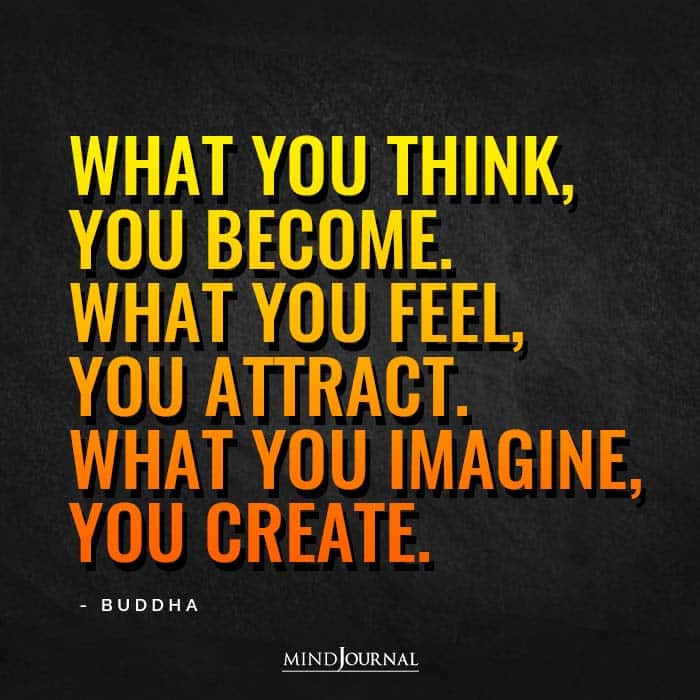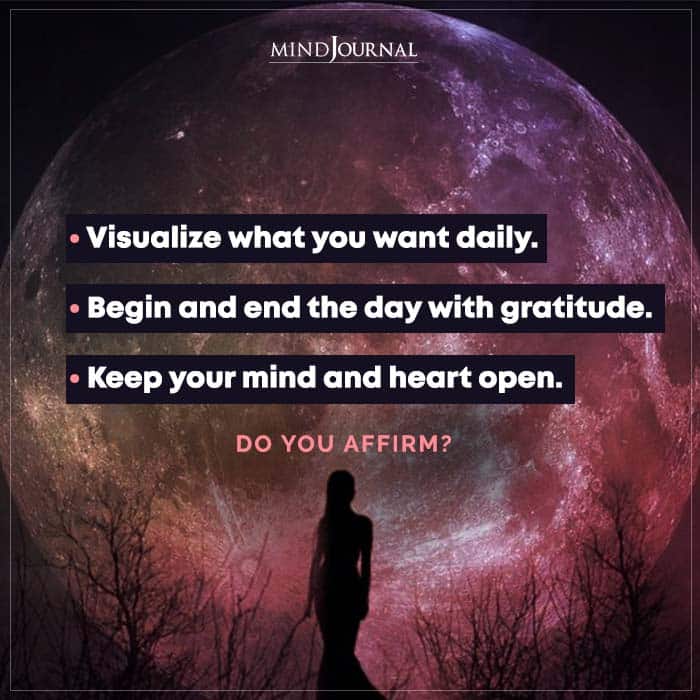The power of visualization is not something that a lot of people might know about. However, once you know how to harness it’s power, you will see that the benefits of visualization can be endless. Explore the power of creative visualization and it’s benefits.
“The man who has no imagination has no wings.” —Mohammad Ali
You’re probably familiar with the old saying, “Seeing is believing.” Well, it’s this adage’s simple concept that’s at the core of a powerful form of mental exercise called visualization. This practice isn’t just for casual daydreamers, though.
Muhammed Ali, Michael Phelps, Katie Ledecky, and other top athletes have used visualization to achieve peak performance. Celebrities and successful entrepreneurs do it, too. And you, as well, can reap the benefits of visualization to reach your goals.
Related: How Visualization Helps To Manifest Your Dreams: 4 Brilliant Visualization Tips
What Is Visualization?
The visualization definition is simple: it involves creating mental images of the things you want. It’s using your imagination to walk yourself through various scenarios as if rehearsing them.
It’s about closing your eyes and not just “seeing” yourself accomplishing whatever is important to you but “feeling” it too.

How Does Visualization Work?
Visualization works by putting you in the right mindset to overcome life’s challenges and achieve your goals. It isn’t a magic wand that makes your dreams come true instantly.
Like meditation, visualization is a mental exercise that is most effective when practiced regularly. It works because the mind can’t tell the difference between what is real and what isn’t with repeated practice, especially when all five senses are incorporated into the visualization.
Essentially, you can trick the brain into thinking that you already have what you desire, or that you already ironed out all the kinks to a problem, whether it’s increased confidence or better school grades.
Simply put, visualization serves as a motivational amplifier to promote positive behavioral changes that may lead to success.
For example, if you would like to start your own business, you can close your eyes and visualize what it would be like to create and market your products. You would focus on each detail—the manufacturing process, customers, business plan, and so forth—and really feel, smell, hear, and taste the experience.
Elite athletes use visualization to work out worst-case scenarios ahead of time. They imagine falling, having pain, dealing with equipment malfunctions, and the like, so that they are prepared if the event happens in real life.
In other words, their brains have already dealt with the problem, so to speak, so they can handle it during a competition without missing a beat.
What Are the Benefits of Visualization?
Visualization has many benefits backed by studies. When done right, a regular visualization practice can help you:
- Gain confidence
- Decrease anxiety
- Enhance performance
- Boost your motivation
- Adopt healthier behaviors, such as eating more fruit
- Increase muscle strength
- Reduce pain
- Relieve stress
- Speed up healing
- Improve prospective memory, or remembering to do something in the future
- Spark inspiration
- Improve mood
- Declutter your mind
- Determine what you want
Related: 5 Steps To Manifest Your Dream Life
How to Do Visualization?
Anyone can harness the power of creative visualization. While there are several visualization techniques, these are the basic steps:
- Set a clear goal, such as landing a job interview.
- Visualize yourself preparing for the interview, sitting in the waiting room, and hearing your name called.
- Try to “feel” every moment as if it were really happening, from answering tough questions well to accepting the job offer.
- See the event in your mind’s eye detail by detail.

A Visualization Example from a Sport Psychologist
My colleague Danielle Keenen-Miller and I had the pleasure of interviewing sport psychologist Robert Corb, PhD, who has used the power of visualization to help student-athletes achieve incredible results.
Here’s an excerpt from The Binge Eating Prevention Workbook, where you can find more details on how to write visualization scripts, in Corb’s own words:
Early in my career as a sport psychologist, a Division I track athlete came to me for help in “performing well in big meets.” Chris (not his real name) explained that he was about to run in the conference championship in what could be his final intercollegiate track meet.
Chris specialized in an event that was long enough to involve some serious race strategy (higher-level cognitive functioning) but short enough to require a sprinter’s mentality during the latter stages of the race. He had a history of under-performing in pressure situations, and he was willing to try anything to break this pattern.
So I asked Chris if he wanted to experiment with me on a new (to me) technique called visualization, or mental rehearsal. I knew the science behind it because I had lectured about it in the sport psychology class I taught. But taking it out of the pages of a book and putting it into real practice was something new.
I asked him to define his outcome goal, and he said that if he ran a personal best time he could win the conference title and possibly qualify for the NCAA regional meet.
He gave me his goal time, and we established a set of checkpoints throughout the race that, if he met, he would know that he was on track to meet his goal. Finally, we were ready for the visualization.
We started writing out a script. I asked him to give me as much detail as he possibly could, focusing on all of the senses and being in touch with what feelings were evoked at different points throughout his race.
I suggested that, if possible, he should view the world as if he were inside a camera looking out. I had him look at old videos of himself when he had raced well, to remind himself of what that felt like.
Chris sat quietly and listened as I read through his script. After each trial, we tweaked the script a little bit until Chris was satisfied that it accurately portrayed what he hoped would happen on race day. We recorded the script and he listened to the audio every night until his conference championship two weeks later.
The Monday after his conference championship, I ran into Chris on campus. He had a huge smile on his face. “Dr. Bob, it went exactly the way we visualized it,” he said. “I felt like I had already run the race and knew how it was going to end.”
Coming into the final turn he was in third place, and just like he imagined, he was able to catch the two runners in front of him. He was even more excited to share the news that he had set a personal best and won the conference championship and was headed to the NCAA regional meet.
Since my work with Chris, I have used visualization with many of my clients. I have worked with musicians and public speakers, and with individuals as well as entire teams. I’ve come to appreciate that visualization can be used in almost any action or performance-based activity.
I also use this skill in my personal life on a daily basis. Sometimes it is as formal as the work I did with Chris, but sometimes it’s as simple as role-playing in my head.
Related: Buddhism Reveals The Ultimate Mindset To Achieve Your Goals
Now it’s time for you to think about the healthy habits you want to cultivate. What’s one small change you can begin today? Identify how you will make this change. Once you know what you have to do and how you’ll go about it, write it out as a script to use as mental rehearsal. With visualization, you can make your dreams come true.
Yes, I want to learn more about Intentional Living.
Citations:
Faytell, M. P., Doyle, K. L., Naar-King, S., Outlaw, A. Y., Nichols, S. L., Casaletto, K. B., & Woods, S. P. (2017). Visualisation of future task performance improves naturalistic prospective memory for some younger adults living with HIV disease. Neuropsychological rehabilitation, 27(8), 1,142–1,155. https://doi.org/10.1080/09602011.2015.1122636 Ranganathan, V. K., Siemionow, V., Liu, J. Z., Sahgal, V., & Yue, G. H. (2004). From mental power to muscle power—gaining strength by using the mind. Neuropsychologia, 42(7), 944–956. https://doi.org/10.1016/j.neuropsychologia.2003.11.018. Rennie, L., Uskul. A. K., Adams, C., & Appleton, K. (2014). Visualisation for increasing health intentions: Enhanced effects following a health message and when using a first-person perspective. Psychological Health, 29(2), 237–52. doi: 10.1080/08870446.2013.843685.
Written By Gia Marson Originally Appeared On Dr. Gia Marson











Leave a Reply